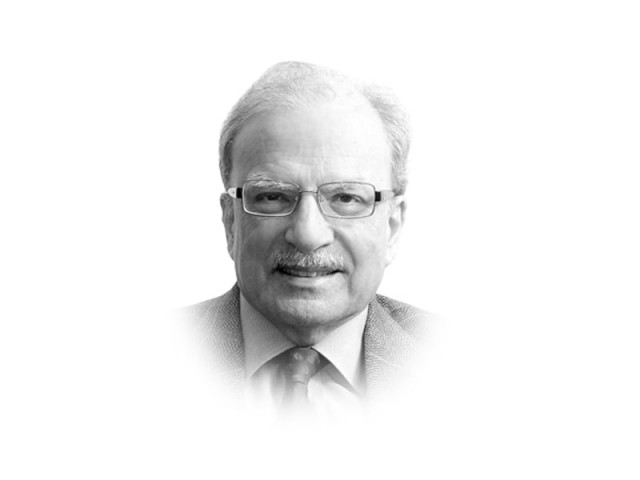The uncertainity that exists
With the amount of uncertainty that currently exists, Pakistan’s economic future is hard to predict.

The country will probably have to wait for the elections to clarify who will yield power in Islamabad and the provinces following the polls. It is passing through a very difficult period — the kind of period that in the past brought the military to power. There now appears to be consensus in the country that repeated interventions by the people in uniform is not the way to move forward and that the solutions to the many problems Pakistan now faces must be found within a broadly representative democratic framework. It is worth the wait for such a system to grow roots. That developing a democratic culture would take time was to be expected, since real democracies take effort and patience before they take root. Even if the wait means a loss of five to 10 percentage points of growth over a few years, this foregone increase in income is worth the price to pay. This is the lesson that we learn by looking at the history of political development around the world.
One of these lessons is that policy reforms in democratic systems don’t move in a straight line. All reforms mean that there will be some losers but many gainers. If the losers have a great amount of political clout, they will manage to block the needed change. It is only when the potential gainers have learnt to mobilise and put pressure on policymakers that the needed reforms can go forward. It is now well recognised that politics and economics react in many different ways. Some of these are obvious; some of them more subtle. But one thing is clear. In democratic societies, change does not come easily. That notwithstanding, it is better to have change within a democratic framework than in those where the decision-making power is in the hands of a few people. There are interesting examples of this non-linear aspect to the process of economic reforms from both India and Pakistan. Beginning first with the Indian case.
In an interview given on December 14, Manmohan Singh, the Indian prime minister, said that his nation’s economy will return to a long-term growth rate of nine per cent a year, as inflation slows and the government extends a record of market-opening policies. For the moment, interrupted reforms have stalled the rate of growth. But growth is not the only setback to the Indian economy. Inflation has increased significantly, in part because of the fall in the value of the Indian rupee. India’s currency has tumbled 17 per cent this year, the worst performance among 10 major Asian currencies. The prime minister promised to get India back on the high growth track.
“We will stay the course. We will make India an eminently bankable and creditworthy economy”, he told the press. However, gross domestic product will increase to 7.5 per cent in the financial year ending March 31, 2012. This is two-and-a half percentage points lower than what India has been aiming at for the last several years.
High on the Indian agenda is the reform of retail trade, which is an important part of the Indian service sector but one that has been marred by extremely low productivity. One way of improving that is to permit large retail groups from the West to set-up shop in India. But the entry of companies such as United States’ Wal-Mart, Britain’s Tesco and France’s Carrefour was blocked by the small operators in the country. There are millions of small shops in India that intermediate between the small producers and small consumers. Shop owners have numbers and political power on their side. They were able to successfully work against the latest move by the government to allow these companies to set-up their businesses in India. To Prime Minister Singh’s great embarrassment, the government fearing a political backlash had to take back its decision. In the interview quoted above, the prime minister said that he expects to succeed in his push to open India’s retail market to foreign companies after regional elections conclude by the end of March 2012. The most important of these will be in the state of Uttar Pradesh that has a population of 200 million and where Rahul Gandhi, the heir to the Nehru-Gandhi dynasty, is attempting to establish his credentials for becoming the country’s new leader.
It is interesting that Pakistan was able to open its retail sector to foreign competition a couple of years ago. Three large western companies have come to the country. These include France’s Carrefour, the Netherland’s Metro and Germany’s Macro. Their entry has already had a profound impact on the productivity of the retail sector. However, Pakistan has done less well in the area of domestic resource mobilisation. Here, politics have intervened negatively. Pakistan had to walk out of the IMF programme, since in the judgment of the policymakers it was not feasible to introduce tax reforms desired by it. Politicians in power seem to have concluded that the cost of undertaking these reforms outweighs the benefits.
This leads to an obvious conclusion. Rather than changing the political system as Pakistan did so many times in its difficult history, people active in the political field must educate their constituents: to get them to see that those who fear that they will lose in the short-term, need not lose over the long-run. Immediate loss may be much smaller than long-term gains.
Published in The Express Tribune, December 19th, 2011.
















COMMENTS
Comments are moderated and generally will be posted if they are on-topic and not abusive.
For more information, please see our Comments FAQ